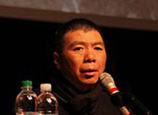
The Nobel laureate Michael Spence has described the U.S. electoral process as "an evolution from one propertied man, one vote; to one man, one vote; to one person, one vote; trending to one dollar, one vote."
The Tea Party, which used to label itself as a grassroots movement, was later found to be financed by wealthy backers such as the Koch Brothers and others, who sought to influence political power.
The social flaws of capitalism, together with the financial crisis and the European debt crisis, should encourage people to rethink the Western development model.
In contrast, a socialist China is able to pool all necessary resources to solve major problems and reduce unnecessary bickering over de facto power competition. The effectiveness of this system helps explain why China has maintained a relatively steady course against the backdrop of the current international crisis.
China's pursuit of socialism is an inevitable choice in history. After the Opium War in 1840, China became a semi-colonial and semi-feudal society, as foreign powers expanded their aggression against China. The country was devastated by incessant wars and turbulence, and the people suffered from hunger, poverty and oppression.
During the struggle of the Chinese people, none of the Westernization movements, such as the 1898 Reform Movement or the 1911 Revolution, prevailed. It is the Communist Party of China (CPC) that changed China's once doomed fate.
In recent years, the social unrest caused by Russia's "shock therapy," Latin America's "radical reform" and some African countries' copying of the U.S. political system have proven that unwise imitation of the Western system can be disastrous.
Although many problems exist, China generally ensures political and social stability and follows a path of socialism that accommodates Chinese features.


















 Underground voices:grassroots singer in subway
Underground voices:grassroots singer in subway


![]()
